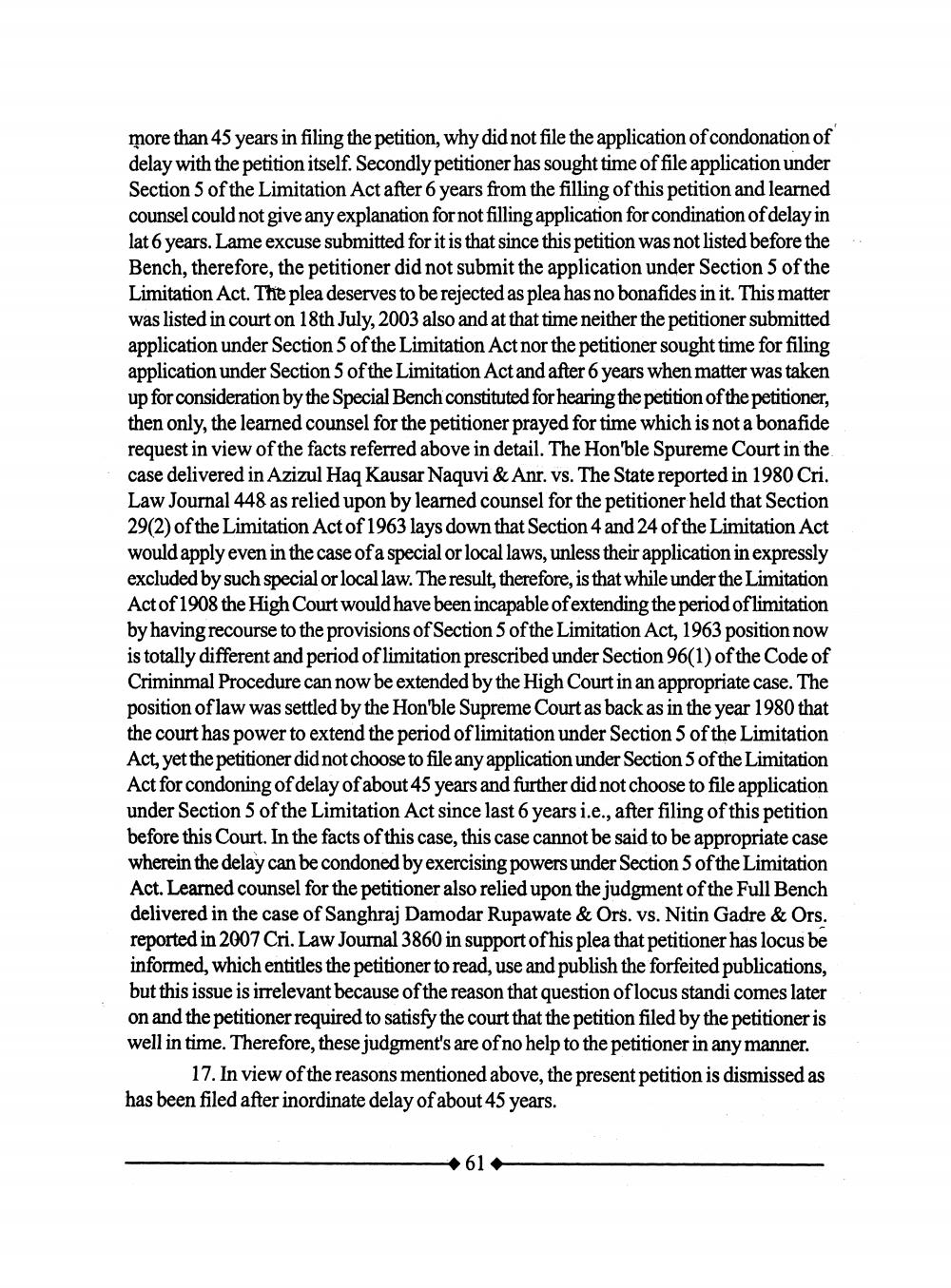________________
more than 45 years in filing the petition, why did not file the application of condonation of delay with the petition itself. Secondly petitioner has sought time of file application under Section 5 of the Limitation Act after 6 years from the filling of this petition and learned counsel could not give any explanation for not filling application for condination of delay in lat 6 years. Lame excuse submitted for it is that since this petition was not listed before the Bench, therefore, the petitioner did not submit the application under Section 5 of the Limitation Act. The plea deserves to be rejected as plea has no bonafides in it. This matter was listed in court on 18th July, 2003 also and at that time neither the petitioner submitted application under Section 5 of the Limitation Act nor the petitioner sought time for filing application under Section 5 of the Limitation Act and after 6 years when matter was taken up for consideration by the Special Bench constituted for hearing the petition of the petitioner, then only, the learned counsel for the petitioner prayed for time which is not a bonafide request in view of the facts referred above in detail. The Hon'ble Spureme Court in the case delivered in Azizul Haq Kausar Naquvi & Anr. vs. The State reported in 1980 Cri. Law Journal 448 as relied upon by learned counsel for the petitioner held that Section 29(2) of the Limitation Act of 1963 lays down that Section 4 and 24 of the Limitation Act would apply even in the case of a special or local laws, unless their application in expressly excluded by such special or local law. The result, therefore, is that while under the Limitation Act of 1908 the High Court would have been incapable of extending the period of limitation by having recourse to the provisions of Section 5 of the Limitation Act, 1963 position now is totally different and period of limitation prescribed under Section 96(1) of the Code of Criminmal Procedure can now be extended by the High Court in an appropriate case. The position of law was settled by the Hon'ble Supreme Court as back as in the year 1980 that the court has power to extend the period of limitation under Section 5 of the Limitation Act, yet the petitioner did not choose to file any application under Section 5 of the Limitation Act for condoning of delay of about 45 years and further did not choose to file application under Section 5 of the Limitation Act since last 6 years i.e., after filing of this petition before this Court. In the facts of this case, this case cannot be said to be appropriate case wherein the delay can be condoned by exercising powers under Section 5 of the Limitation Act. Learned counsel for the petitioner also relied upon the judgment of the Full Bench delivered in the case of Sanghraj Damodar Rupawate & Ors. vs. Nitin Gadre & Ors. reported in 2007 Cri. Law Journal 3860 in support of his plea that petitioner has locus be informed, which entitles the petitioner to read, use and publish the forfeited publications, but this issue is irrelevant because of the reason that question of locus standi comes later on and the petitioner required to satisfy the court that the petition filed by the petitioner is well in time. Therefore, these judgment's are of no help to the petitioner in any manner.
17. In view of the reasons mentioned above, the present petition is dismissed as has been filed after inordinate delay of about 45 years.




